Harvard student demonstrates real-time disclosure of personal information using Meta smart glasses

Harvard University students
I-XRAY - Google Docs
https://docs.google.com/document/d/1iWCqmaOUKhKjcKSktIwC3NNANoFP7vPsRvcbOIup_BA/
College students used Meta's smart glasses to dox people in real time - The Verge
https://www.theverge.com/2024/10/2/24260262/ray-ban-meta-smart-glasses-doxxing-privacy
Nguyen and Ardayfio created a technology called 'I-XRAY,' which uses the Instagram live video streaming feature of Meta's Ray-Ban Meta smart glasses. I-XRAY uses facial recognition to identify Ray-Ban Meta live streams and display online links to the same person. This allows the system to display personal information such as the name, address, and phone number of anyone whose face appears in a live stream.
You can see how I-XRAY actually works by watching the video below.
Are we ready for a world where our data is exposed at a glance? @CaineArdayfio and I offer an answer to protect yourself here: https://t.co/LhxModhDpk pic.twitter.com/Oo35TxBNtD
— AnhPhu Nguyen (@AnhPhuNguyen1) September 30, 2024
The smart glasses used are Ray-Ban Meta.
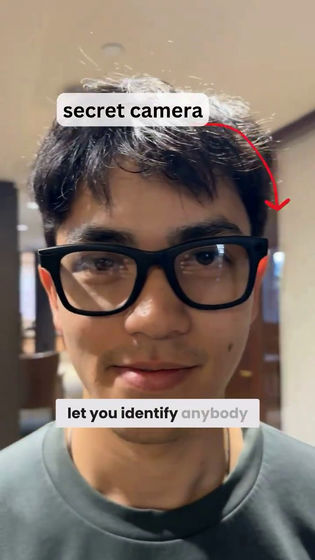
When passing by people on the street, AI is used to recognize their faces.
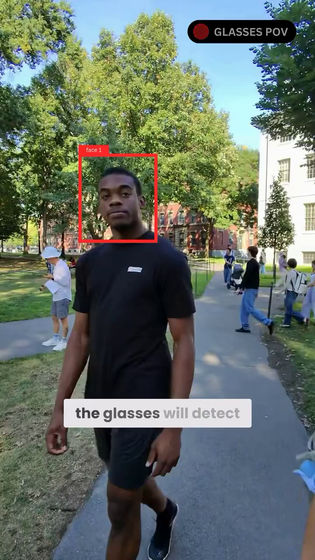
Afterwards, personal information of the same person was extracted from the internet.
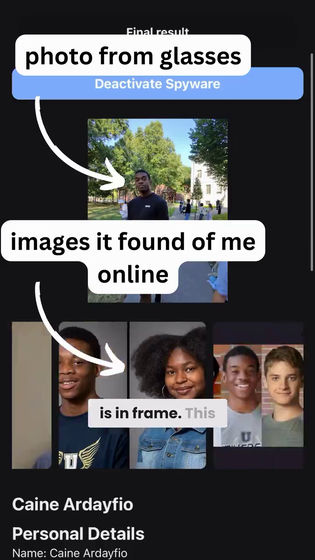
When Nguyen and Ardayfio's classmates and relatives verified whether this information was correct, they were able to identify the personal information with a fair degree of accuracy.
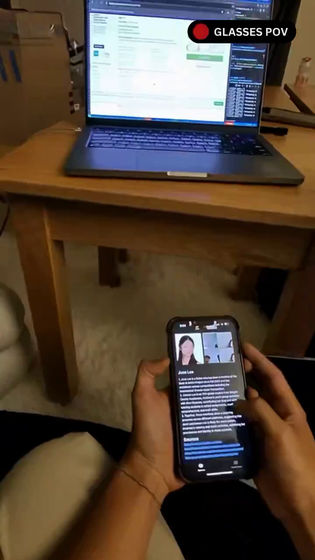
In addition, a demonstration was given of I-XRAY being used to check the personal information of strangers passing by on public transport, and then having the strangers verify that this information was accurate.
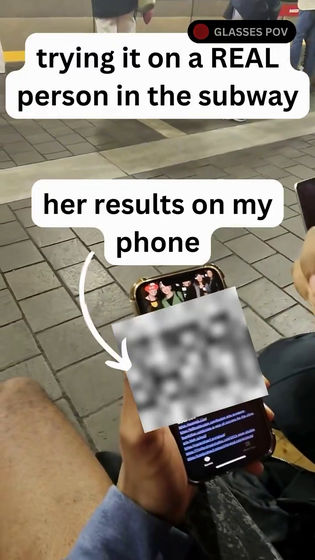
The video also shows how, based on the information displayed on I-XRAY, a person communicates with a complete stranger, pretending to be an acquaintance.
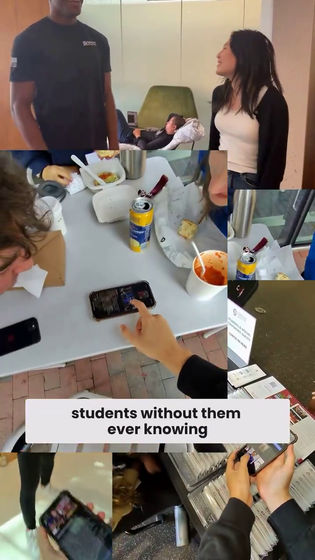
The facial recognition system used by I-XRAY is
'The purpose of creating this tool is not to abuse it, so we do not intend to release I-XRAY,' said Nguyen and Ardayfio. Nguyen and Ardayfio explained that they released I-XRAY to raise awareness that this can be easily achieved by simply combining existing technologies. What's unique about I-XRAY is that it automates all operations using AI.
Privacy has always been a big concern for smart glasses. Google Glass, the first smart glasses released by Google, failed in part due to public backlash over having their field of vision recorded without consent in public places. However, it is also true that many people have become accustomed to having cameras pointed at them due to the spread of smartphones, TikTok, Vlogs, etc. And cutting-edge smart glasses like Ray-Ban Meta look like they don't even have a camera.

The Verge points out that while the appearance of regular glasses and smart glasses is important for the spread of smart glasses, it makes it difficult for people to notice that a camera is being pointed at them. In addition, Ray-Ban Meta is equipped with a privacy light that turns on automatically when shooting video, but this is difficult to notice when it is turned on in bright outdoor areas, and is often not noticed, especially in crowded public places.
In its privacy policy , Meta warns users not to abuse the device, encouraging them to 'respect the preferences of others' and to use clear gestures and voice controls when recording videos, live streams, or taking photos.
The Verge writes, 'I-XRAY is a stark warning of how smart glasses can be misused, but there are some steps people can take to protect themselves. In their paper, Nguyen and Ardafiyo list reverse face and people search databases that you can opt out of. Still, remember that it's nearly impossible to completely remove your online presence; all you can do is make your information harder to obtain.'
Related Posts:






